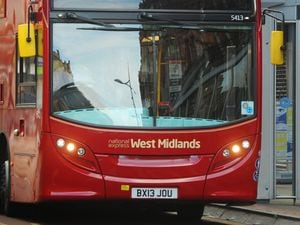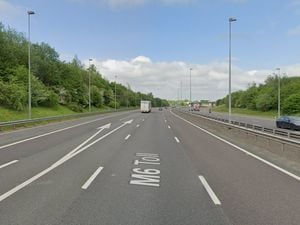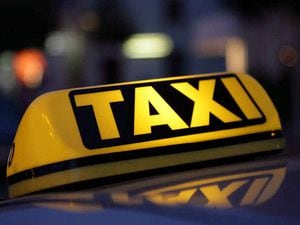Bus fares set to rise across West Midlands as Covid support ends
Bus services across the West Midlands are set to be cut and fares may increase when emergency Covid funding ends in March, transport bosses have warned.

During the pandemic, operators have been propped up by the Government’s Bus Recovery Grant (BRG), which was brought in to cover losses incurred due to reduced passenger numbers.
A report to the West Midlands Combined Authority (WMCA) says operators faced a potential "cliff edge" when the funding stops at the end of March, and were likely to slash services to make ends meet.
The region's bus network has been cut by four per cent since March 2020, while passenger numbers in November last year were down by 25 per cent of pre-Covid levels.
The report says that as of October 2021 the region's bus network received half of its income from public funding sources, up from 27 per cent pre-pandemic.
It says: "The Government’s Bus Recovery Grant (BRG), negotiated directly between Government and bus operator groups and covering some of the operator losses, is due to finish at the end of March 2022.
"Currently bus operators are telling us that the amount of money available from Government is not what was expected and may result in some network reductions even prior to the end of March 2022.
"Whilst it is highly unlikely that Government will not provide any funding at all after March 2022, the fact that there is currently no committed funding represents an incredible challenge which is being talked about across the industry as a potential ‘cliff edge’, given such a substantial reduction in passenger revenue, which is unlikely to have recovered to pre-covid levels by then."
The report adds: "It is almost certain that in the face of national Bus Recovery Grant ending, or being reduced, that operators will seek to rationalise their operations in order to remain financially viable meaning that the network faces risks of service cuts, fare increases, or reliance on increased subsidy."
It said "less profitable" routes were most at risk, adding that the region's transport body, Transport for West Midlands (TfWM), could be forced to put forward up to £50 million in subsidies to maintain services.
"TfWM are also seeking support from Government to stabilise the existing network until October 2022 to ensure a smooth transport provision during the Commonwealth Games," the report says.
In the run-up to Christmas, National Express apologised to customers after driver shortages led to services being cancelled, delayed, and eventually scaled down.
The report will be presented by the WMCA's transport lead Councillor Ian Ward at a meeting on Friday.





